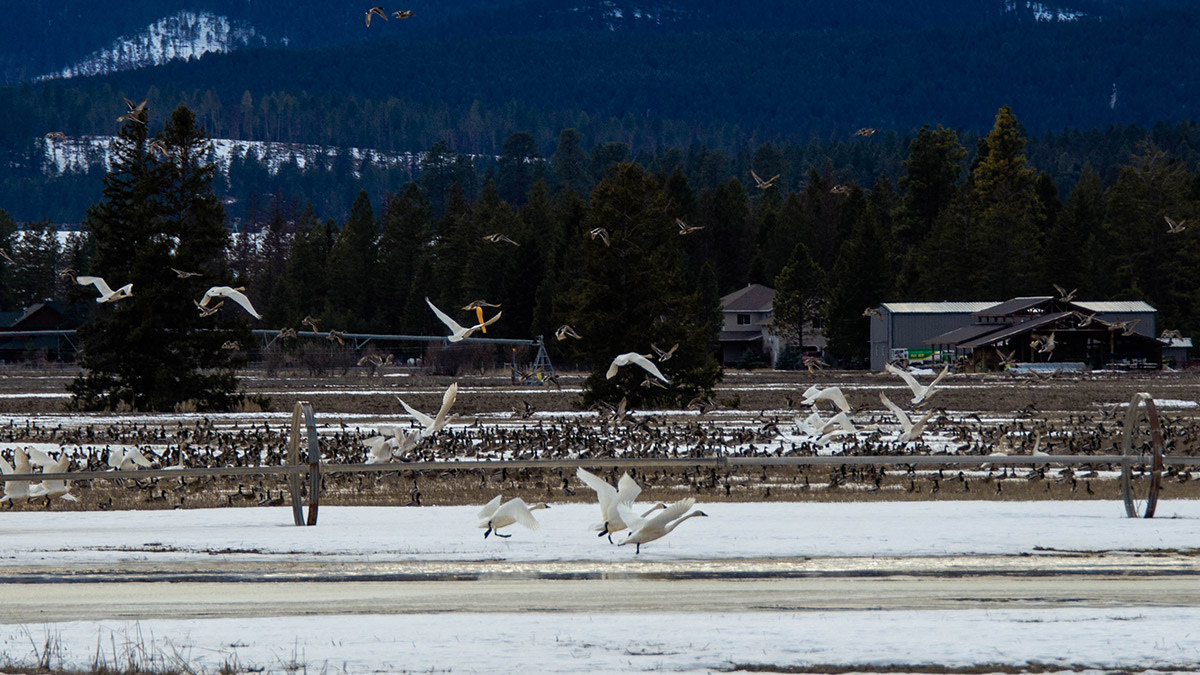Interior Department to Weaken Protections for Waterfowl and Other Migratory Birds

On Thursday, the Trump Administration announced new regulations that would remove penalties for construction, oil, gas, and other industries that incidentally kill birds listed under the Migratory Bird Treaty Act of 1918. If approved, the new set of rules would only punish companies that deliberately kill birds, making many in the conservation community wonder what purpose the century-old conservation law now serves.
The Deepwater Horizon oil spill in 2010, for example, killed hundreds of thousands of birds that came into contact with the millions of gallons of crude oil loose in the Gulf of Mexico. BP was fined $100 million under the Migratory Bird Treaty Act. Under the new proposed regulations, however, there would have been no such criminal penalty at all, because the oil giant didn’t kill those birds intentionally. Even illegal acts, like spraying a banned pesticide that happened to kill birds, could not be prosecuted under the treaty act, if birds were not the intended target according to The New York Times.
U.S. Fish & Wildlife Service Director Aurelia Skipwith said the administration chose to amend the enforcement of the law so that companies “can operate without the fear and uncertainty that the unintentional consequences of their actions may be prosecuted.”
Skipwith maintains that her department is committed to conserving birds and that the rolled-back regulations are simply an attempt to make the rules more clear. The administration stopped enforcing the previous regulations in 2017 after a legal opinion found that previous administrations had interpreted the law too broadly. Officials insist that businesses will still try to avoid killing birds on a “purely voluntary” basis, although there have already been examples of the federal government discouraging municipalities and businesses from even voluntary protections.
The Migratory Bird Treaty Act was enacted in 1918 following a convention with Canada, making it one of America’s first conservation laws. Mexico, Japan, and Russia later joined the accord. The law makes it illegal to kill, capture, or sell without a waiver migratory birds on the official list, which now includes more than 800 species. Among those listed are nearly every species of waterfowl popular with hunters, from mallards to king eiders. The treaty was followed by the 1934 Migratory Bird Hunting Stamp Act, which has provided funds to conserve millions of acres of wetlands habitat through sales of the federal duck stamps that hunters place on their licenses each fall.
Eight states and six conservation groups have already sued the administration over the 2017 legal opinion, and they were joined in an amicus brief last week by numerous former Interior Department officials from both Democratic and Republican administrations.
“These proposed changes remove any teeth that could be used to prevent our ducks and geese from becoming collateral damage to industry,” said Ryan Callaghan, MeatEater director of conservation. “If we let these changes go through it will be like issuing a get out of jail free card, a license to steal.”
The new rule will be posted on the Federal Register on Monday, Feb. 3. The public will then have 45 days to voice their support or disapproval.
Feature image via Joe Ferronato.





